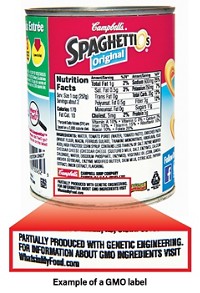Advertisement
Grab your lab coat. Let's get started
Welcome!
Welcome!
Create an account below to get 6 C&EN articles per month, receive newsletters and more - all free.
It seems this is your first time logging in online. Please enter the following information to continue.
As an ACS member you automatically get access to this site. All we need is few more details to create your reading experience.
Not you? Sign in with a different account.
Not you? Sign in with a different account.
ERROR 1
ERROR 1
ERROR 2
ERROR 2
ERROR 2
ERROR 2
ERROR 2
Password and Confirm password must match.
If you have an ACS member number, please enter it here so we can link this account to your membership. (optional)
ERROR 2
ACS values your privacy. By submitting your information, you are gaining access to C&EN and subscribing to our weekly newsletter. We use the information you provide to make your reading experience better, and we will never sell your data to third party members.
Policy
GMO food labeling bill stalls in the U.S. Senate
Measure that would have voided state labeling rules fails to garner enough support, but could come up again later this year
by Britt E. Erickson
March 18, 2016
| A version of this story appeared in
Volume 94, Issue 12

Legislation that would block states from requiring labels on genetically modified (GMO) foods faltered in the Senate last week.
The measure, which was offered as an amendment to an unrelated bill (S. 764), would prohibit states from requiring labels on GMO foods and establish a federal voluntary labeling standard. In a 48-49 vote, the bill failed to garner enough support for the Senate to move it forward.
Senate Majority Leader Mitch McConnell (R-Ky.) left open the possibility of holding a vote on the GMO food labeling legislation at a later date.
Sen. Pat Roberts (R-Kan.), who introduced the legislation, and supporters of his proposal, including the food industry, are anxious to get the measure enacted before a law requiring labels on GMO foods goes into effect in Vermont on July 1. Other states are also planning similar laws.
The food industry claims that a patchwork of state labeling laws will be costly for companies and, ultimately, consumers. Environmental and food safety advocacy groups are calling the Senate bill’s defeat a victory for consumers, who they say have the right to know what is in their food.
Roberts, chairman of the Senate Agriculture, Nutrition & Forestry Committee, is urging opponents of his proposal to work with him toward a solution. “I have been flexible and have compromised in order to address concerns about making information available to consumers,” he says.





Join the conversation
Contact the reporter
Submit a Letter to the Editor for publication
Engage with us on Twitter